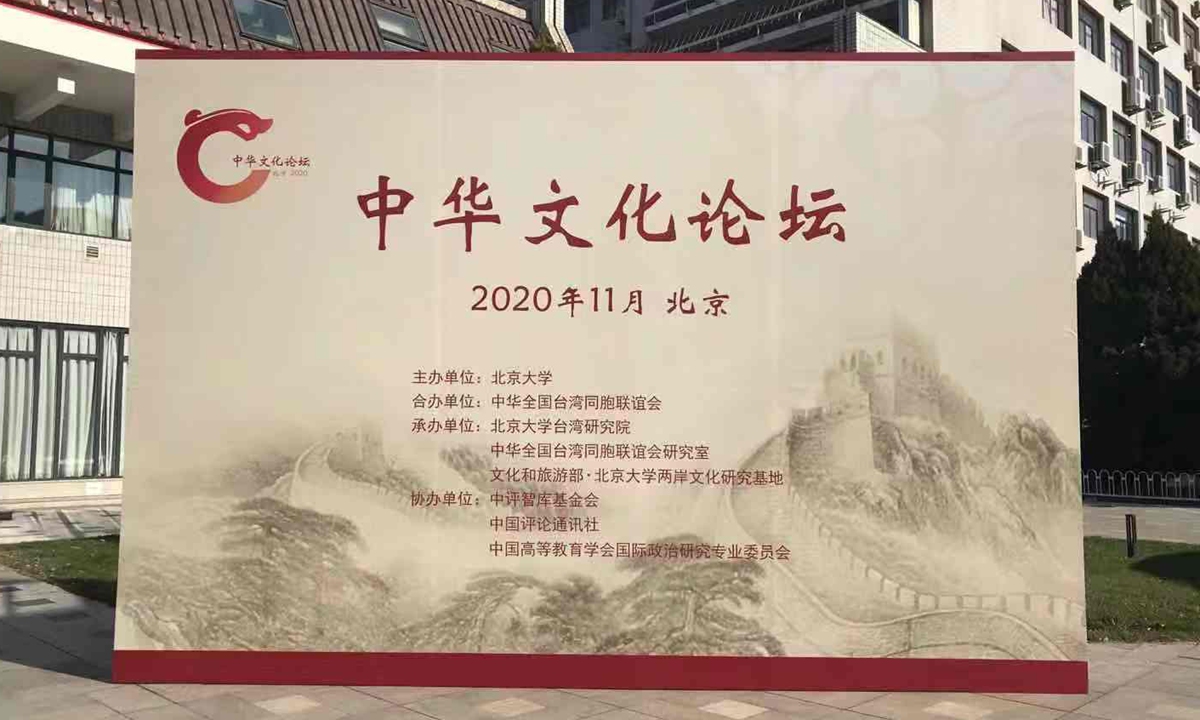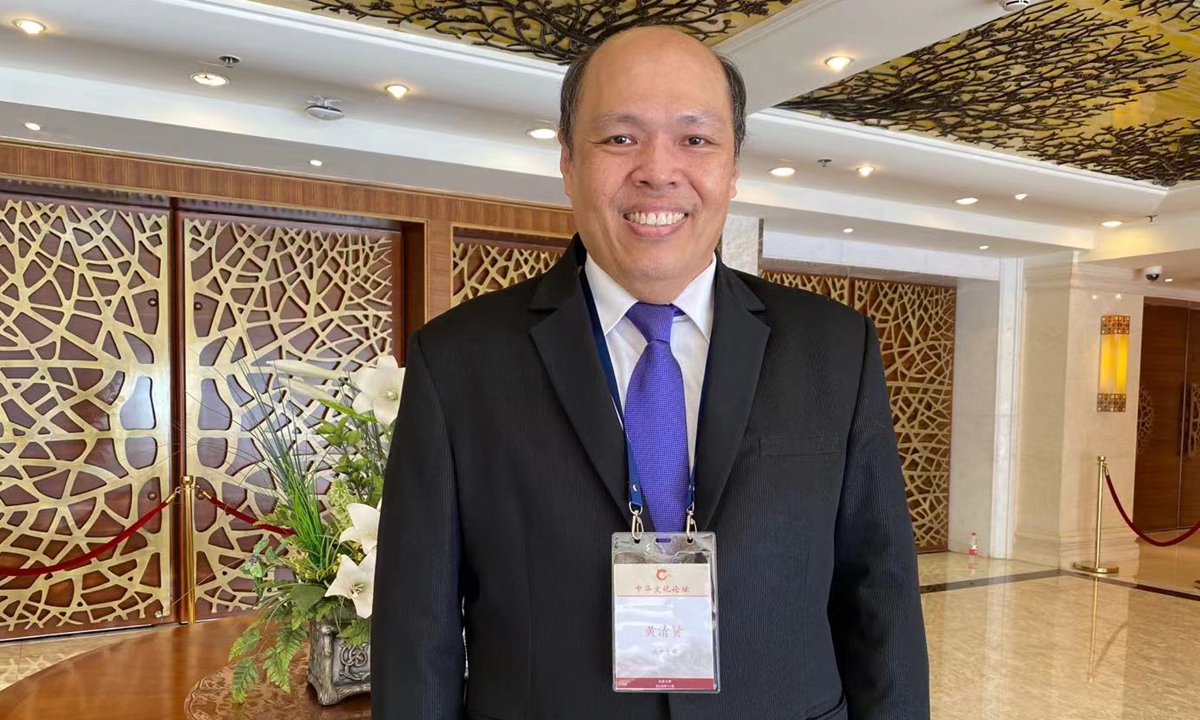ARTS / CULTURE & LEISURE
The 6th Forum on Chinese Culture held in Peking University calls for more exchanges across the Taiwan Straits

The 6th Forum on Chinese Culture is held in Peking University on November 24, 2020. Photo: Wang Qi/GT
Over 100 experts, scholars and cultural personages from both sides of the Taiwan Straits on Tuesday gathered at Peking University, to participate in an annual Forum on Chinese Culture under the theme "Chinese Culture: Inheritance and Innovation," amid the rising cross-Straits tensions caused by Taiwan's pro-independence authority.
According to Li Yihu, dean of Peking University's Taiwan Research Institute, the forum aims to further elucidate and promote the contemporary values and world significance of Chinese culture, especially its positive role in promoting the peaceful and integrated development of cross-Straits relations.
In view of the COVID-19 pandemic, the forum was held both online and offline, with a main venue in Beijing and a sub-venue in Kaohsiung, Taiwan.
Zhang Zhijun, the head of the Association for Relations across the Taiwan Straits, addressed the opening ceremony saying that despite the twists and turns of cross-Straits relations, the belief of compatriots on both sides of the Taiwan Straits in jointly inheriting Chinese culture has not been shaken.
"The momentum of cultural exchanges between the mainland and Taiwan is irreversible… The increasingly rich content and innovative forms of cultural exchanges have played an irreplaceable role in the peaceful development of cross-Straits relations," said Zhang.
Yang Yizhou, vice head of All-China Federation of Taiwan Compatriots, slammed the pro-secessionists Democratic Progressive Party authority, which deliberately removed Chinese elements from textbooks and promotes "cultural Independence," in an attempt to sever the historical and cultural links between the two sides of the Taiwan Straits.
"Such erroneous views of history and culture, which run counter to history and reality, will lead to the wrong national and cultural identity of the young people in Taiwan, and will inevitably lead to more intense social confrontation across the Taiwan Straits," Yang said.

Huang Ching-hsien, head of Taiwan Studies Center of Nankai University Photo: Wang Qi/GT
Huang Ching-hsien, head of Taiwan Studies Center of Nankai University and the former KMT Mainland Affairs Department director, told the Global Times on Tuesday that since the Democratic Progressive Party (DPP) came to power in 2016, Taiwan and the mainland have been gradually separated politically.
However, the two sides of the Taiwan Straits are of the same origin and cutting the cultural exchanges between the two sides are difficult for many Taiwanese to accept, said Huang.
Huang suggested that the mainland needs to provide more accurate and relevant information that Taiwan people can hear to build a better platform for Taiwan people to come to the mainland for better development.
"The mainland has repeatedly introduced measures to benefit Taiwan, showing its support for Taiwan compatriots. As more people in Taiwan understand these measures, the DPP's attempt to deprive Taiwan people of their pursuit of a better life with political ideology will be futile," Huang said.
The two-day forum, hosted by Peking University and co-sponsored by All-China Federation of Taiwan Compatriots, is hosted by The Taiwan Research Institute of Peking University, the All-China Federation of Taiwan Compatriots and the Cross-Straits Cultural Research Base of Peking University.
Qiu Shuiping, the Party head of Peking University, said in a speech that the university has always attached great importance to academic exchanges and cooperation across the Taiwan Straits. At present, 481 Students from Taiwan are studying at Peking University. Every year, more than 100 exchange students from Taiwan are studying at Peking University.
Since 2015, the forum has been held five times at Peking University, attracting many experts, scholars, cultural personages and political leaders from the mainland, Taiwan, Hong Kong and Macao.

